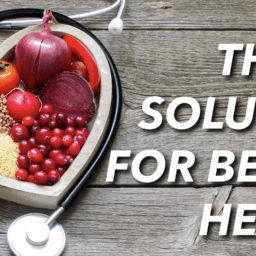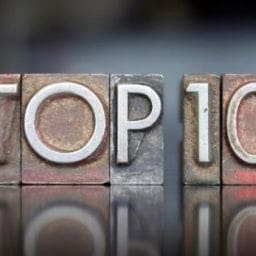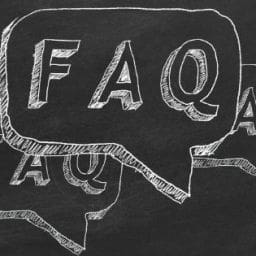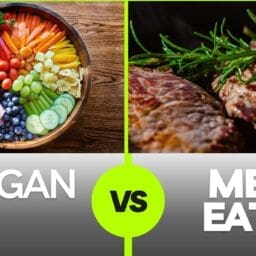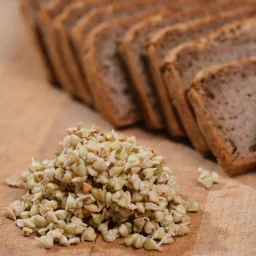
What is Intermittent Fasting?
I want to talk to you today about fasting.
Fasting has some incredible benefits. I was reading the literature and was a big fan of it for many years, but I didn’t try it. Honestly I was a little bit chicken to be honest with you because I’ve had some issues with blood sugar and getting a little bit hangry, so I didn’t want to mess with that. But then I tried it out recently, and oh my goodness- it made a huge impact in my life. So let’s talk about it.
There are many types of fasts. I’m going to go over some basic principles and what I think would be a good place to start. I’m going to really focus on what’s called time restricted eating or intermittent fasting. There is also fasting for a prolonged period of time- three, four or five days or longer. Or you might hear people doing a juice fast for like 40 days. I do not recommend that.
Warnings
You also have to be careful fasting with certain medical conditions or while taking certain types of medications. So I wouldn’t just jump right into this, definitely check with a provider you trust that understands fasting before you get started with it, but at least educate yourself on it because it has some amazing benefits. I don’t recommend long fasting because you just flat out will lose muscle. You’re just gonna lose muscle and your metabolism is gonna go down. It’s excessive beyond a day or two, and I’m talking about if you’re not eating anything, just doing water.
Healthy Fasting
A more everyday sustainable lifestyle involves intermittent fasting. I think one of the easiest things to do is just to cut out breakfast. Let me summarize the science there, you consume your meal the night before you go to bed, your body, your hormones have to stabilize, your electrolytes, your blood sugar, all your stuff has to stabilize right now. Otherwise you can’t stay asleep, you’d have to get up and eat. So if it stabilizes it, it just makes sense to then continue that fast. As you wake up, drink some water, you can do bulletproof coffee, if you want. We have to pretty much keep that same nice level, that hormonal profile of your bloodstream until hopefully about noon.
Cutting out breakfast as a means of entering intermittent fasting, is one of the smartest ways to do it. And it is just the most practical for a lot of people as well. We also are so busy in the morning. A lot of times our breakfast is wimpy anyway, and some people skip it anyway. So go ahead and continue that, but get in some water though with some salt, just a little pinch. And a bulletproof coffee gives you some awesome fats there. I highly recommend putting some grass fed butter in there, and that will give you some great minerals as well. That’s gonna hold you over until right up until 11 or 12 o’clock, try that. And then do your normal lunch. You will notice that after a while though, you’ll be hungry. But a different kind of hunger like you have more control over it, more physiological and psychological control over your hunger, it’s kind of cool actually. Versus like being hangry and shaky and feeling like you have got to eat and then overeating.
Make sure though lunch is pretty large. I recommend going another six hours without eating if you can, and skipping right through mid afternoon for a snack. If you get right to dinner and consume dinner around between 5-7pm. Lunch should be the largest, dinner should be moderate size. Just make sure you’ve got enough so you aren’t hungry after dinner. Then we start the next day and try not to eat again until noon.
You might have to introduce that midday meal at 10 o’clock when you are first getting used to it.
Then move it up a little bit to 11, then 12. Just see how your body responds.
More control over blood sugar
The more you fast, the more insulin sensitive you’ll get. Which means you have better control over your blood sugar. You actually need to eat less as your body gets sensitive. That’s one of the main benefits to fasting, is your insulin sensitivity goes through the roof. That means you secrete less insulin with each meal, even a large meal, vs when you eat meals frequently. Humans are really not meant to eat three, four, five or six times a day.
That’s for the average person, there’s different conditions out there, like if you’re an athlete, but as just a regular human being, get two meals a day.
Cancer fighting benefits
Okay, one of big things I want to tell you real quick as well before we end this is apoptosis. There’s an epidemic of cancer right now. I’m not saying I have all the answers. Nobody does. But I can tell you, if you can do some apoptosis, which means you kill off cancer cells or rogue cells, before they’ve created a blood supply which is called angiogenesis, if you can kill them off before that, that’s a win. Okay, no matter who you are, how old you are, doesn’t matter. Apoptosis is one of the big benefits of fasting, even intermittent fasting has been shown to induce that to some extent.
Another big one is called autophagy. Autophagy is when our immune system doesn’t have all this food to digest all the time. Instead of being around the GI tract, it can go out and send soldiers out to the rest of our body tissues and clean up old cellular waste, old cells, old debris, maybe attack parasites or microbes. It can really clean up all this other junk in our body. Remember when you eat food and consume meals, all your immune system has to go to your GI. It has to because that’s where most illness comes from, comes from the outside in.
Weight loss
That’s two big benefits of fasting that I think are huge. A third one is insulin sensitivity. You’ll just notice you have more blood sugar control, you’ll feel better, your energy will go up. I wasn’t even really trying to but I lost 10 pounds within that first month. I wasn’t trying to diet exactly. I just think the inflammation and insulin correction improved. There’s also probably some caloric reduction, which isn’t bad. Most of us carry around extra weight. Why not do something about it? So check out intermittent fasting.
Let me know how it goes, take care and be well
Dr. Jason
Naturopathic doctor in Lansing, MI

